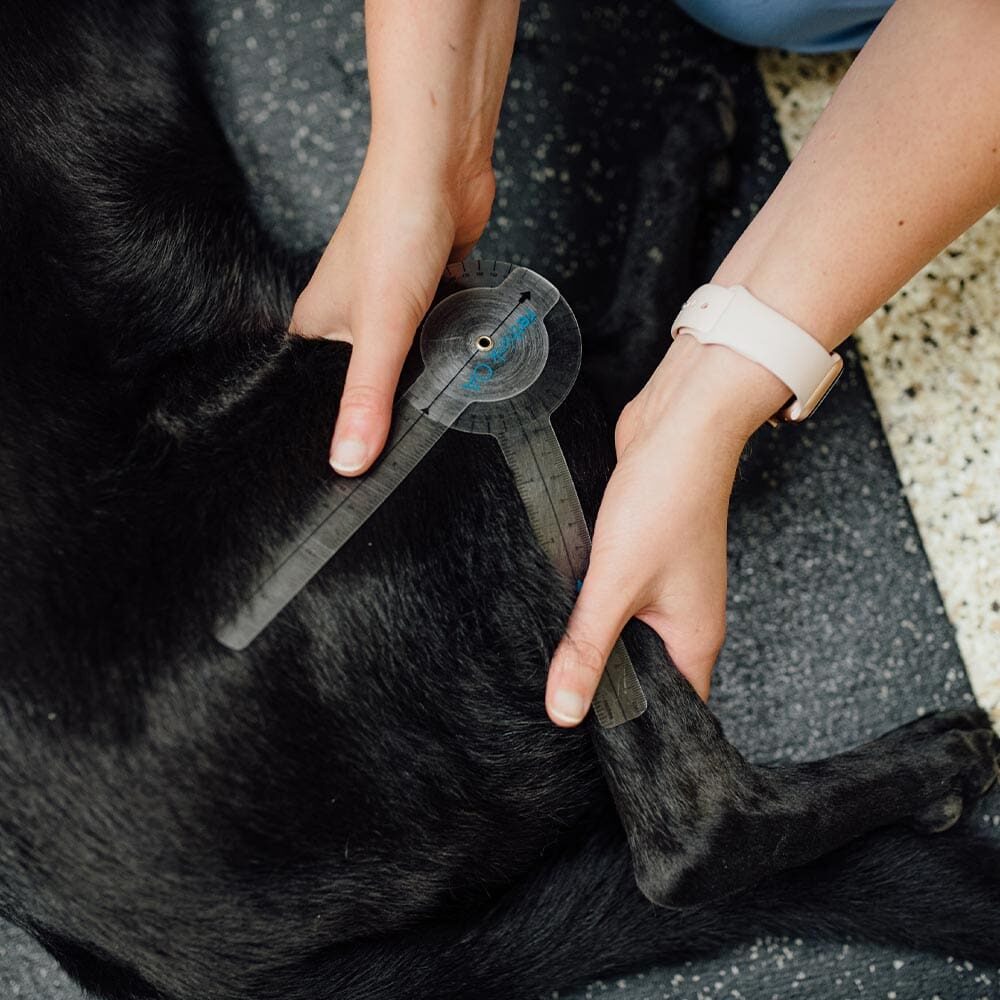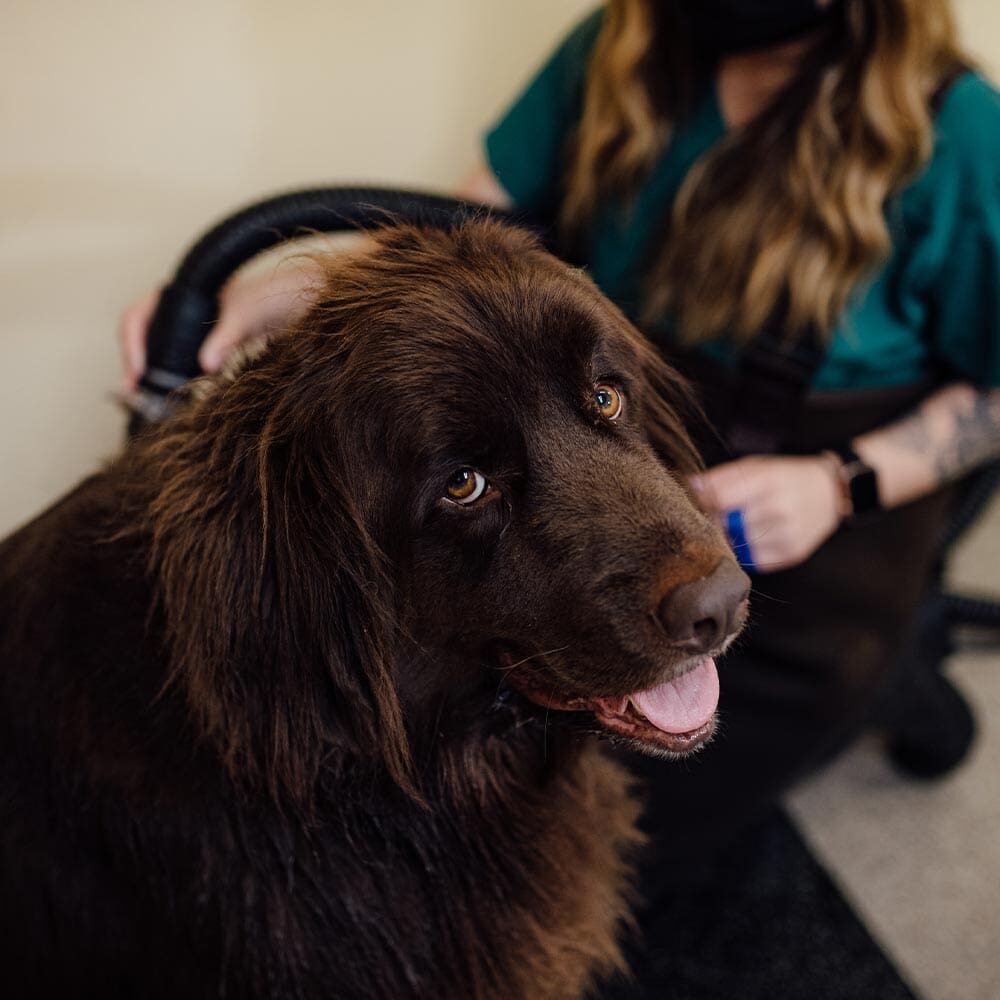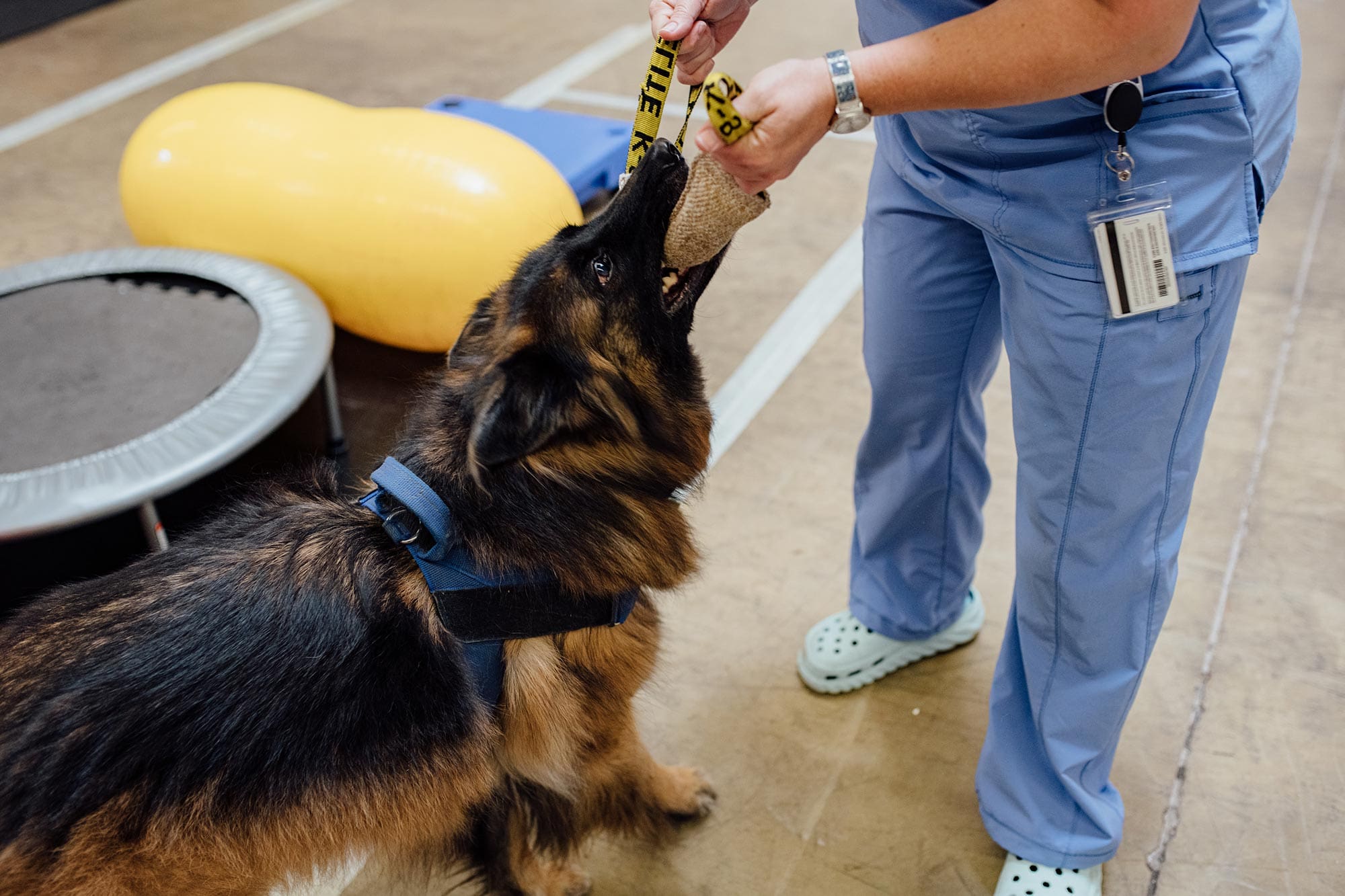At VSC, our Rehabilitation and Integrative Medicine Department provides a compassionate and advanced approach to improving your pet’s mobility, comfort and overall well-being. Whether your pet is recovering from and injury or surgery, managing a chronic condition or working to regain strength or flexibility, the Rehabilitation Team is here to support them in our pet rehabilitation facility in Bannockburn, IL.
What to Expect
Your pet’s journey in VSC’s Rehabilitative and Integrative Medicine Department begins with a thorough evaluation by our Rehabilitation Team. During the initial consultation, we review your pet’s medical history, diet, lifestyle and the concerns that bring your pet to us. A comprehensive physical assessment follows, which may include mobility and gait evaluation, range of motion testing, muscle mass assessment and pain evaluation. Based on our findings, we will discuss an individualized rehabilitation plan tailored to your pet’s needs. If additional diagnostics such as X-Rays, ultrasound or lab work are needed to refine the treatment approach, we will discuss those options with you. The initial appointment typically lasts 60-90 minutes, this often includes an initial treatment.


Benefits of Partnering with the VSC Rehabilitation Team
Whether your pet is recovering from surgery or an injury, navigating a chronic condition, or in need of support for an orthopedic or neurological disorder, our team works closely with multiple specialties – such as Surgery, Internal Medicine and Neurology – to create a fully customized treatment plan. We listen closely to your at-home capabilities and the needs of your pet to design the best treatment solution that facilitates reaching the therapeutic goals for your pet.
Common Conditions We Treat
Our Rehabilitation Team provides support for a wide range of conditions affecting mobility and comfort. Some of the most common issues we treat include the following.
-
Mobility Challenges
Whether due to injury, aging, or an underlying condition, we help pets experiencing lameness, back pain, and mobility issues get back up on their paws.
-
Neurological and Orthopedic Conditions
We provide rehabilitation for non-surgical, pre-surgical, and post-surgical cases, helping pets regain strength and function.
-
Pain Management
Chronic pain caused by injury, illness, or disease—such as cancer or polyarthritis—can greatly impact a pet’s well-being. Our therapies are designed to relieve discomfort and improve overall quality of life.


Rehabilitation Therapies We Offer
Our facility is equipped with the latest technology to support your pet’s recovery and ongoing comfort, while our Rehabilitation Team stays up to date on the most current techniques. Our therapies include the following.
-
Therapeutic LASER (PhotoBioModulation)
LASER therapy is a non-invasive treatment that reduces inflammation, promotes healing and relieves pain.
-
Therapeutic Ultrasound
When using ultrasound for physical rehabilitation, sound waves stimulate tissue repair, increase circulation and improve flexibility.
-
Acoustic Compression Therapy
This therapy targets arthritis and musculoskeletal pain by enhancing blood flow, reducing inflammation and treating pain.
-
Physical Rehabilitative Exercises
Individually customized exercises are designed to improve a pet’s strength, coordination, flexibility, etc. These exercises may be performed on land or in water, depending on your pet’s needs.
-
Underwater Treadmill Therapy
We offer two underwater treadmill unties, including a custom-built system that accommodates patients of all sizes, from teacup breeds and cats to large and giant breed dogs. Underwater treadmill therapy offers a variety of rehabilitation techniques from hydrostatic massage to low-impact strength and endurance conditioning.
-
Acupuncture
Acupuncture is often used to help treat pain, musculoskeletal and neurological conditions, as well as support other body systems.
-
Chiropractic Care
Chiropractic Care helps restore proper alignment and movement, supporting overall function and reducing discomfort.
At VSC, our goal is to provide every pet with the best possible care, whether they are recovering from injury or surgery, managing a chronic condition or simply in need of additional support to maintain their mobility and comfort. Our comprehensive approach ensures that each patient receives an individualized treatment plan tailored to their unique needs.

